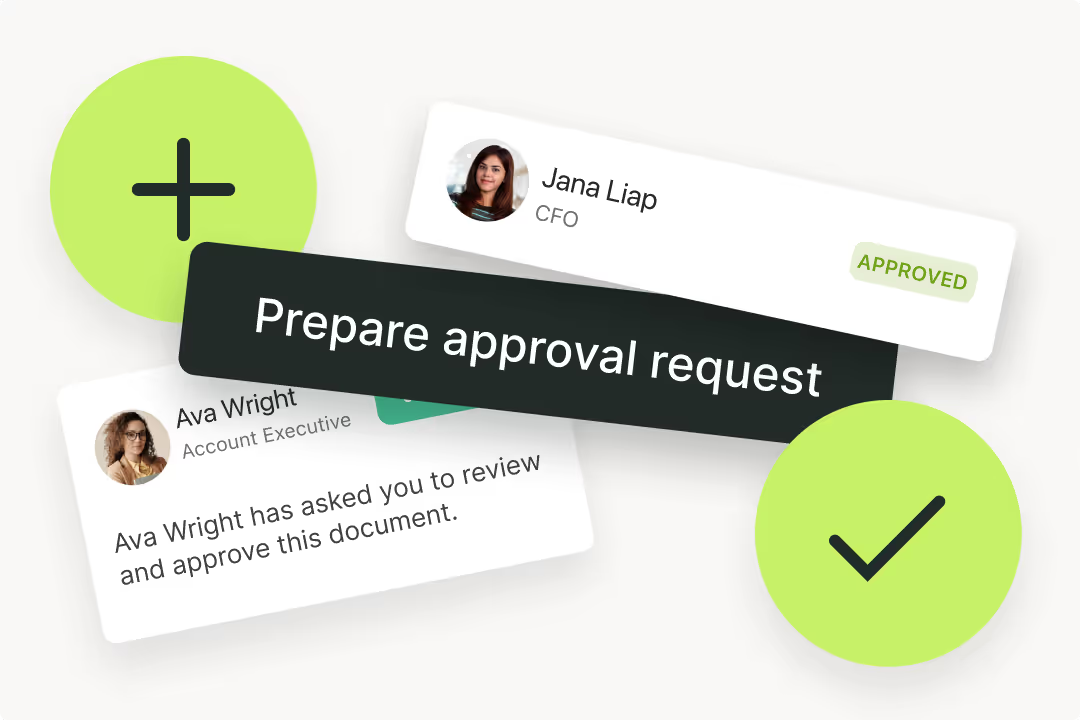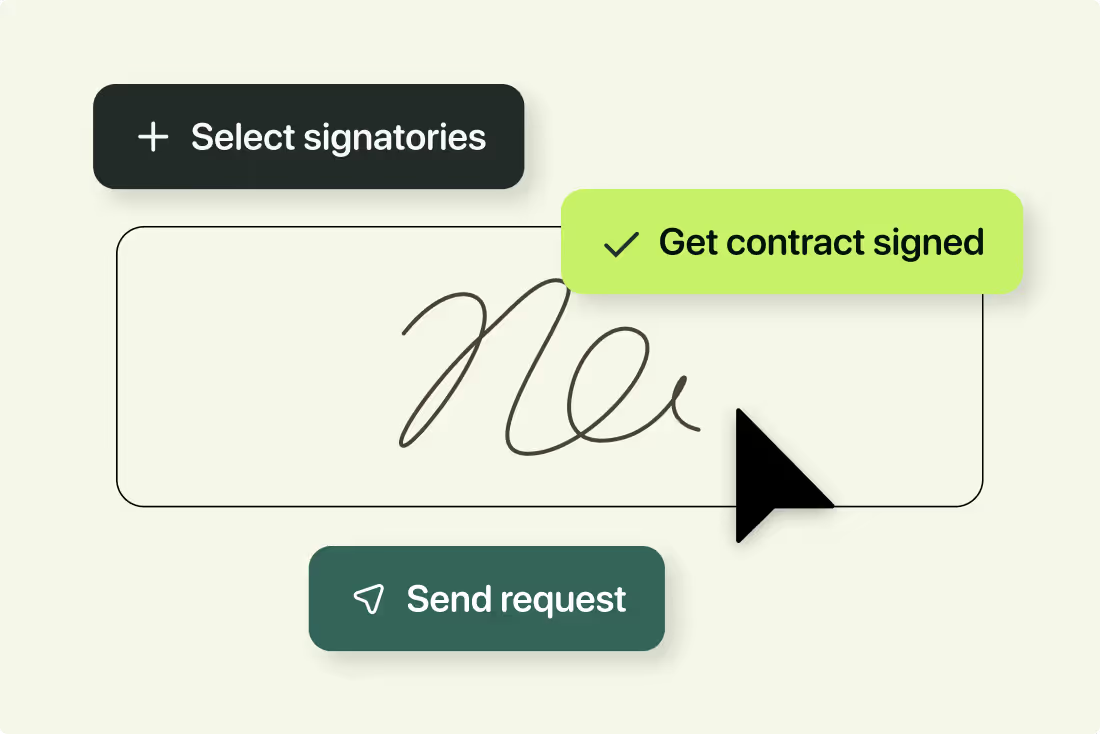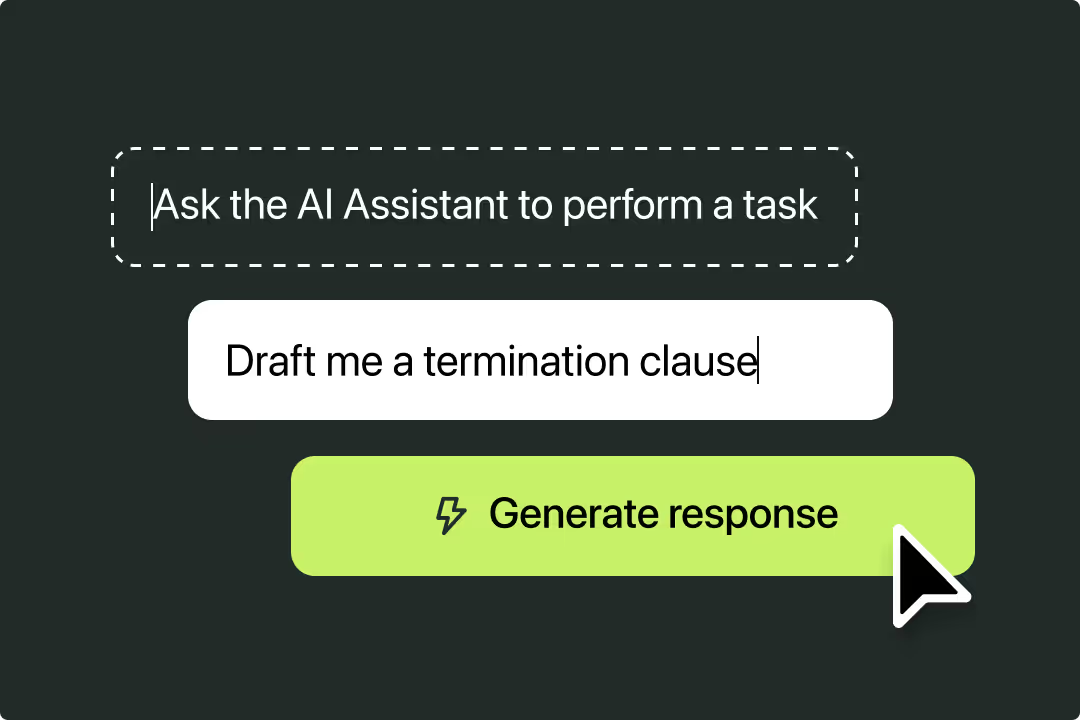Solutions
Customer Support
Resources
Before we get into the benefits of supplier contract management software and how to choose the right solution, let's start with an explanation of supplier contract management, and some tips you can implement from the off.
Supplier contract management describes creating, negotiating, executing, and monitoring agreements between a company and its suppliers. These contracts outline the terms and conditions of the business relationship, including pricing, delivery schedules, quality standards, performance metrics, and more.
Many of the typical contract management best practices apply to supplier contracts. However, there are a few important differences between supplier contracts and other types of business contracts, including that:
This means that there are a few, additional tips procurement teams should consider when managing supplier contracts in 2026. Let’s explore what these are now.
Before entering into a contract, you need to make sure the supplier you’re contracting with is the right one. This means you’ll need to vet them carefully, identifying any risks and red flags that might make the supplier unreliable and unsuitable for your needs.
When doing this, you should consider their financial stability, reputation, and track record when it comes to performance. It’s also a good idea to find out whether they’re already working with businesses like yours, and what those partners think.
Evaluating potential suppliers effectively can derisk your contracts, allowing you to select reliable partners and reduce the likelihood of disruptions and contractual disputes later down the line.
Approvals can be one of the biggest blockers for supplier contracts. Failing to get buy-in from your internal stakeholders early on will only worsen this, so don’t leave getting their approval until the moment you need their signature.
Instead, focus on getting the relevant stakeholders on calls with the supplier and bring them into the decision-making process from the start. That way, you’ll avoid nasty surprises and unexpected blockers ahead of time, making the supplier contract management process faster and more efficient.

The best way to make sure both parties keep to their side of a supplier agreement is to make the contract terms as clear and thorough as possible. That way, all parties know what’s expected of them and what they need to do to perform the contract in full.
Consistency is also important. Relying on standardized or automated contract templates for your supplier agreements can ensure you’re agreeing to favorable terms and taking a consistent approach to supplier relationships. No more worrying about commercial teams drafting their terms, and no more worrying about hidden costs or risks.
It’s also important to track contract compliance when managing supplier contracts. This can involve monitoring everything from quality control, to delivery timelines, and other contractual obligations.
However, this can be difficult if you don’t have a single source of truth for contracts and their data. If you want to monitor contract compliance in a faster, more accurate, and more efficient way, you’ll need a centralized contract repository, and ideally, fully searchable contracts.
Not sure where to start? Check out this guide to contract compliance.

Strong supplier relationships are crucial for procurement teams. To avoid disruption, you want to build supplier relationships that can withstand market volatility and renegotiations. There are a few things you can do to maintain these relationships, including:
These vendor management best practices enable you to build a level of trust and rapport with your suppliers, making it easier to do business going forward.
Proactively managing contract renewals allows organizations to negotiate favorable terms, pricing, and conditions before the existing contract expires. This can result in cost savings by avoiding automatic renewals at potentially higher rates or unfavorable terms.
Rather than sitting back and waiting for contracts to expire or automatically renew, a proactive approach to contract renewals involves setting up contract reminders ahead of time, giving parties more time to make strategic decisions about whether (and how) to renew.
To learn more about how to adopt a proactive approach to contract renewals, check out this guide to renewal management.
Investing in contract management software can transform the way you manage supplier agreements. With a solution like Juro, procurement teams can create, agree, execute and manage contracts up to 10x faster than traditional tools. Procurement teams using a CLM can benefit from:
{{quote1}}
Juro’s AI-enabled contract automation platform empowers legal and other business teams to accelerate the creation, execution and management of contracts. To find out more, hit the button below.
Otherwise, read on for more advice on choosing the right supplier contract management solution.

When evaluating supplier contract management software, it's important to first consider what supplier agreements are, and the challenges of managing this type of business contract.
For example, supplier contracts tend to be on third party paper. This means that there's less drafting and more tracking involved. This means you'll benefit from post-signature contract management features the most.
Signing supplier contracts with wet ink is becoming a thing of the past - thankfully!
Today, modern businesses are digitizing the process by signing contracts electronically. This provides a faster and more convenient route to getting contracts over the line, enabling teams to sign from anywhere, on any device.

The best supplier contract management solutions will offer this functionality natively in their platform, rather than expecting you to buy and implement a separate solution like DocuSign or Adobe Sign.
Juro's secure, native eSignature means you don't need to switch tools to agree terms. You can sign in the same place you create, negotiate, store and track supplier agreements.
First, you'll need somewhere to store your supplier contracts, and you want it to make searching for specific agreements simple.
This alone is a dramatic improvement processes where supplier contracts are stored as physical files, or scattered across shared drives. It also means you can quickly pull together those all-important files ahead of a fundraise or due diligence process.
Juro makes this process even easier for businesses like yours, with OCR search functionality that enables uses to query contracts in seconds to find specific terms and values.
Juro's supplier contract management software also offers custom contract dashboards, making it easier than ever to filter and manage supplier agreements at scale.
The tricky thing about supplier agreements is that ownership of these can be split across the business. They sit primarily with procurement teams, but it's common for other teams in the business to purchase goods and services too.
As a result, key contract data is spread across several different places, and there's no single source of truth for things like renewal dates, or payment dates. This is risky business.
Fortunately, you can use a supplier contract management software like Juro to automate contract reminders for key deadlines.
Users simply tag the dates as contract metadata and customize the frequency of the reminders based on their preferences. The relevant stakeholders will then be notified when the deadline is approaching, giving them instant visibility into these milestones.
Choosing a supplier contract management solution with AI functionality is a great way to cut the time you spend reviewing and extracting data from contracts.
For example, Juro's AI legal assistant can be used to automate contract review and propose amendments based on your contract playbook and guardrails.
You can even use Juro's AI Assistant to identify the key legal risks in contracts, or summarize contract terms and present them in a format that's ready to share with stakeholders. There are so many possibilities.

6000+ businesses use Juro to streamline their contract management, with the highest adoption of any CLM according to G2. This makes it a great choice if you're in the market for supplier contract management software.
Best of all, Juro's end-to-end contract management functionality means the platform is well-equipped to handle contracts on your own paper, too. This brings teams and contracts together and minimizes painful back and forth.
In fact, Juro's automated templates, rich-text editor, and AI draft functionality work seamlessly with the features we listed above, enabling businesses like yours to agree contracts 10x faster.
If you're interested in seeing Juro in action, fill in the form below to book your personalized demo.
Lorem ipsum dolor sit amet, consectetur adipiscing elit. Suspendisse varius enim in eros elementum tristique. Duis cursus, mi quis viverra ornare, eros dolor interdum nulla, ut commodo diam libero vitae erat. Aenean faucibus nibh et justo cursus id rutrum lorem imperdiet. Nunc ut sem vitae risus tristique posuere.

